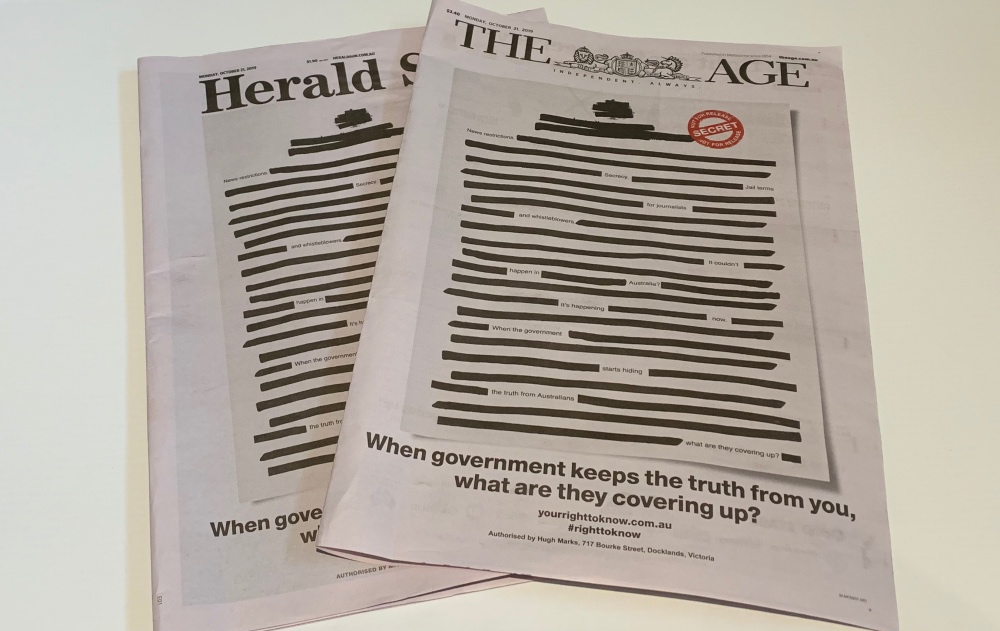Last updated: 10.20am
Sydney, Australia
Reuters
Australia’s biggest newspapers ran front pages on Monday made up to appear heavily redacted to protest against recent legislation that restricts press freedoms, a rare show of unity by the usually tribal media industry.
The protest was designed to put public pressure on the government to exempt journalists from laws restricting access to sensitive information, enact a properly functioning freedom of information system, and raise the benchmark for defamation lawsuits.

Two Victorian newspapers – among those running special front pages as part of the protest.
“It’s about defending the basic right of every Australian to be properly informed about the important decisions the government is making in their name,” Nine CEO Hugh Marks said in a statement.
Australia has no constitutional safeguards for free speech. The government added a provision to protect whistleblowers when it strengthened counter-espionage laws in 2018, although media organisations say press freedoms remain restricted.
Australia’s Communications Minister Paul Fletcher was not immediately available for comment on Monday. The government has previously said press freedom was a “bedrock principle”.
Mastheads from the domestic unit of Rupert Murdoch’s News Corp and Australian Financial Review publisher Nine Entertainment ran front pages on Monday where most of the words were blacked out, giving the impression the copy had been censored like a classified government document.
News Corp Australasia executive chairman Michael Miller said people “should always be suspicious of governments that want to restrict their right to know what’s going on”.
Global attention turned to media freedoms in Australia this year when a court order prevented media from reporting that the former Vatican treasurer, Cardinal George Pell, had been found guilty on child sex abuse charges.
Some Australian outlets reported that an unidentified person had been convicted but some foreign media companies identified Pell because they were outside Australia’s jurisdiction.
Prosecutors are now seeking fines and jail sentences for three dozen Australian journalists and publishers for their coverage of the trial. Pell is appealing against his convictions.
The subject came to a boil again in June when police raided the head office of the ABC in Sydney and the home of a News Corp editor on suspicion of receiving national secrets.
The raids, which involved police examination of about 9,000 computer files at the ABC and sifting through the female News Corp editor’s underwear drawer, drew international condemnation.
The British Broadcasting Corporation called the raids “deeply troubling”.
The ABC said at the time the raid on its office was in relation to 2017 stories about accusations of military misconduct in Afghanistan. News Corp has said the raid on its employee concerned an article about government plans to spy on Australians’ emails, text messages and bank accounts.
Under intense pressure, the government issued a directive to the Commonwealth Director of Public Prosecutions in September that will require permission from Attorney General Christian Porter to approve any charges against journalists.






